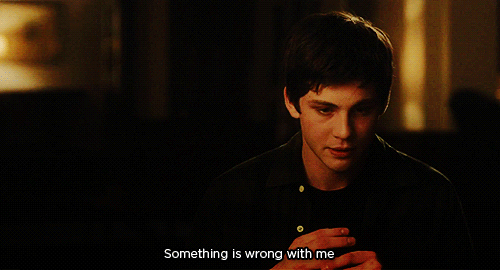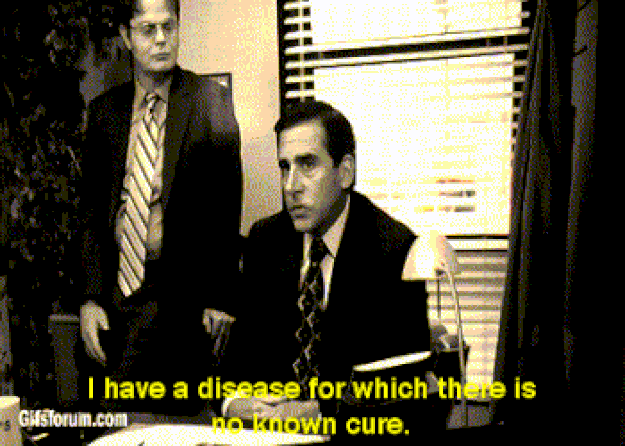When I was five, I thought that my cuticles being slightly lifted off my fingernails would let all the air out of my body and that’s how I would die. And so began my lifelong relationship with hypochondria. I read this line in a book and I’ve never identified to a sentence more in my life: “I’m the type of raging, obnoxious hypochondriac that can make a doctor with even the kindest bedside manner snap.”
Hypochondria is defined as “abnormal anxiety about one's health, especially with an unwarranted fear that one has a serious disease.” Having been a hypochondriac for as long as I can remember, I think it’s important that people know that it’s not just some laughable type of anxiety and in many cases, it should be treated the same way other mental illnesses are. Here are some things that happen when you’re a hypochondriac:
1. Fun events are no longer fun.
This does not necessarily mean you are depressed. By all means, you WANT to go see the solar eclipse that happens so rarely, but you know you will think you have solar retinopathy for the next two weeks, even if you viewed it safely. And that concert your friend invited you to? You may have to decide if it’s worth it to lose sleep over the idea that it may give you tinnitus.
2. Worry consumes your mind.
I once read an article that said that no one’s problems are smaller than others because once a worry enters your mind, it’s like helium filling a balloon; it just consumes it. This means that while it may seem like everything in your life is perfectly fine, there’s a balloon of anxiety that’s taken over your mind, which can make even the simplest of activities worrisome.
3. Your doctors know you very well.
The only thing that will calm a hypochondriac’s mind down is a doctor visit. Not only is this expensive and time consuming, but doctors aren’t always sensitive to hypochondriacs and may laugh their worries off, as if thinking they have a brain tumor hasn’t been paramount to the patient’s week. And when you do finally visit a doctor, they tell you don’t need to return for another year, but you know you’ll be back way before then.
4. People tell you to relax.
Usually, when you express a worry to a friend or relative, their first instinct is to tell you that you’re crazy for thinking that you have hemosiderin staining from a bruise you acquired three months ago. After they urge you to relax, you’ll tell them that you spent four hours researching it and are fairly certain that you have it, upon which they’ll reluctantly tell you to see a specialist (or a psychiatrist.)
5. You literally can’t relax.
Hypochondria can interfere with your sleep by keeping you awake at night, while you try to diagnose yourself. Even if you normally partake in relaxation practices such as yoga, it can be extremely difficult to leave your hypochondria at the door and not let your fears follow you to the mat.
6. You begin to physically feel symptoms you mentally imagined.
Hypochondriacs tend to worry themselves sick...literally. So, they may not have had anything wrong with them until they started worrying that something was, and now there truly is something wrong with them. Your mind plays tricks on you and can make you feel something physically just because your mind believes it so strongly.
7. You are a walking WebMD.
Your mom has probably told you that you should consider a career in the medical field, but what people fail to realize is that that self-diagnosis is a curse, not a blessing. Spending an exorbitant amount of hours on Mayo Clinic isn’t how I want to spend my time, but it’s the only thing that will calm me down until I see a professional.
8. You’re convinced you are that rare 1% of the population that gets THAT disease.
And sometimes you might be right. Hey, rare diseases have to happen to some people, don’t they? It’s probably just your luck that you are that extremely uncommon case. The idea of being that patient on “House” that stumps House and his team is terrifying to you because you know that it’s an actual possibility.
9. You’re immune to Advil.
Self diagnosis leads to self treatment, so you probably take Advil or other OTC pain management pills like they’re candy. And you can’t understand why some people are so anti-medication. If it will help them, why wouldn’t they want to take it?
Hypochondria is a very real type of anxiety that manifests itself in the form of obsession over health. It can range from mild to severe, but either way, it could be debilitating, especially if it coincides with another mental illness. And it definitely shouldn’t be taken lightly, especially by doctors.























